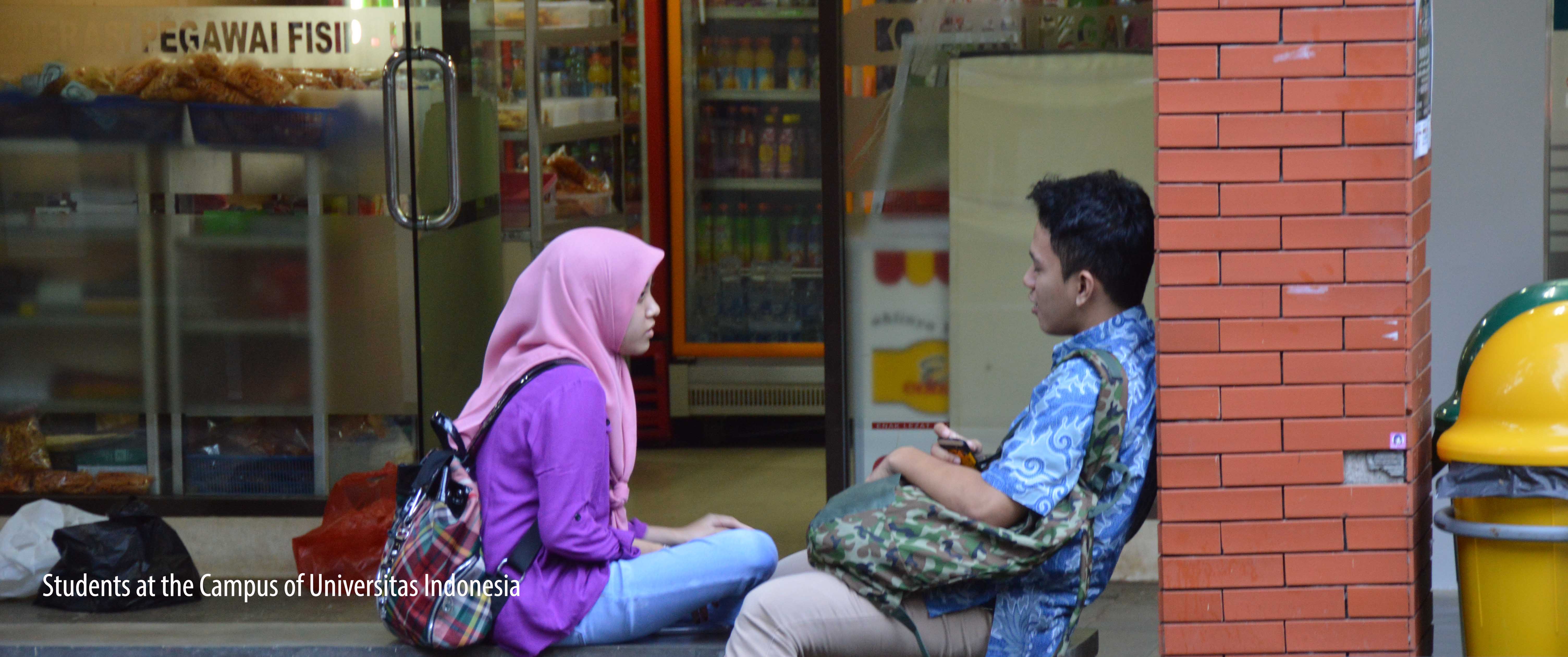
02 Aug Blog: Studying higher education and youth futures in Southeast Asia
By Suzanne Naafs
Young people’s desires to become educated and upwardly mobile are often understood as signs of rising affluence and changing markets for education and work in Southeast Asia. Anthropologist Suzanne Naafs argues that the meanings that young people attribute to education also provide rich insights into structural inequalities between ASEAN countries.
The last four months I analysed 17 interviews with young people aged 18-21 years from Hanoi, Jakarta, Manila and Singapore that were recorded as part of KITLV’s audiovisual project ‘Sharing Asian Futures’. Participants in this research were asked about family, education, work, leisure time, their hopes and fears for the future and the position of their country in the region and the world.
The futures imagined by these young men and women range from opening a cake shop to becoming a professional blogger, a child psychologist or government employee. Taking advantage of the global expansion of mass higher education, and regardless of the family resources and networks available to them, everyone considered schooling indispensable to pursue their dreams and improve their family’s socio-economic standing.
Discussing their family biographies, several interviewees in Hanoi and Manila traced a shift from their grandparents who had been farmers to their parents who had moved to the city in search of better livelihoods. As Trung (19, Hanoi) notes: “If my parents had decided to stay in the countryside, met each other and married in the countryside, things would have been different now. Maybe I would have been studying in the countryside, not here in Hanoi.”
Similarly, My (19) a female university student in Hanoi, observed how she was breaking new ground in her family by attending university: “People in rural areas think that girls don’t need to have a higher education. They expect them to reach a certain level of schooling, then marry and have kids.”
Interviewees also criticised the quality and accessibility of higher education. Students in Jakarta cited rote learning, expensive university fees and questioned the skills of Indonesian graduates in ASEAN’s increasingly open market. They also noted how social media, dating, drugs and ‘hedonistic’ student lifestyles distracted them from their studies.
Singaporean students reported being so caught up with the demands of a competitive higher education system that they had little time for anything else. Moreover, they worried about their job prospects in relation to an influx of foreign talent in Singapore. In contrast, some of the youth in the Philippines wondered if their country’s practice of sending overseas workers abroad would result in a brain drain.
Interviewees in Hanoi, Jakarta and Manila discussed problems of underemployment among university graduates. They wondered if secure government jobs could be accessed through education credentials or nepotism.
Clearly, higher education expansion is fuelling young people’s hopes for the future. If the criticisms in these interviews are any indication, access and quality of education are likely to continue to shape the futures of young people in ASEAN’s competitive labour markets, even if current education realities do not always meet students’ expectations.
(Suzanne Naafs is a freelance visiting fellow at KITLV. She is analysing interviews with Southeast Asian youth and editing audiovisual material from the Sharing Asian Futures project to be distributed on the Internet)




No Comments